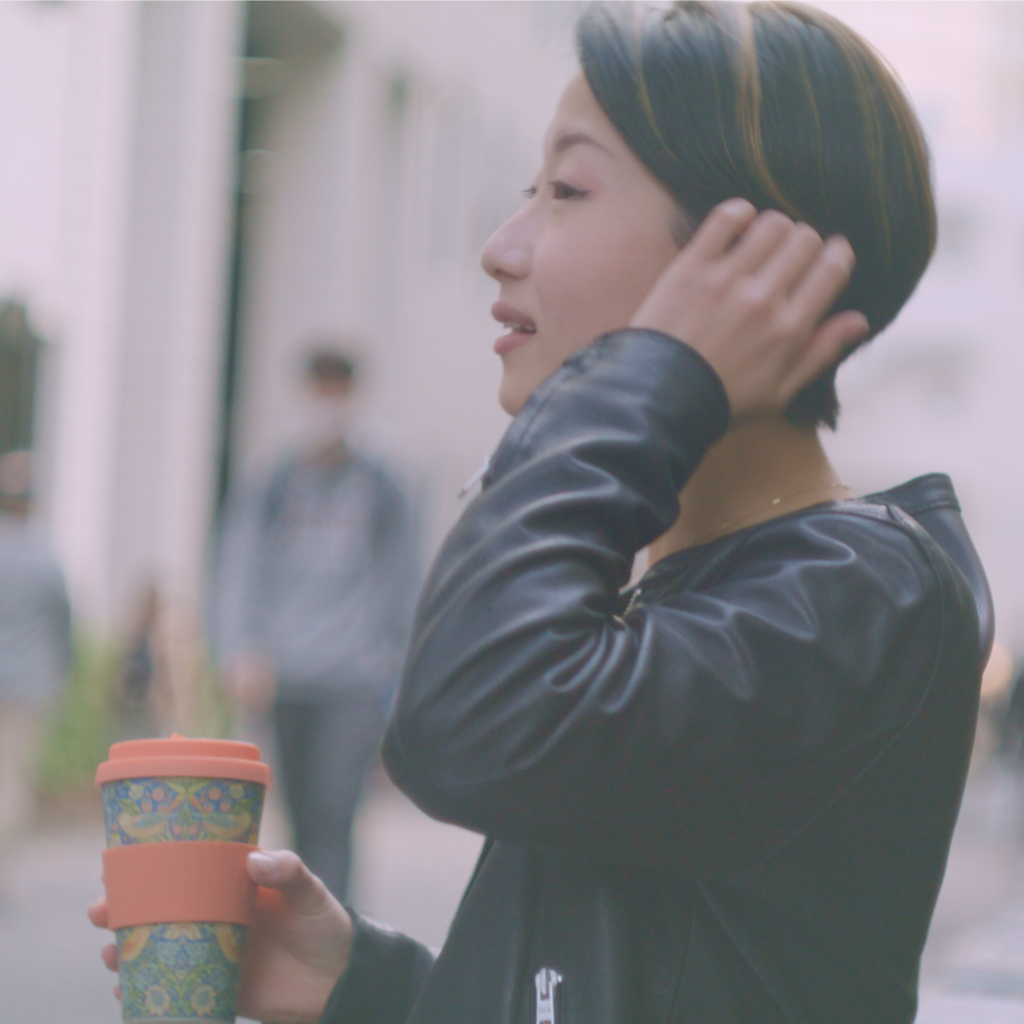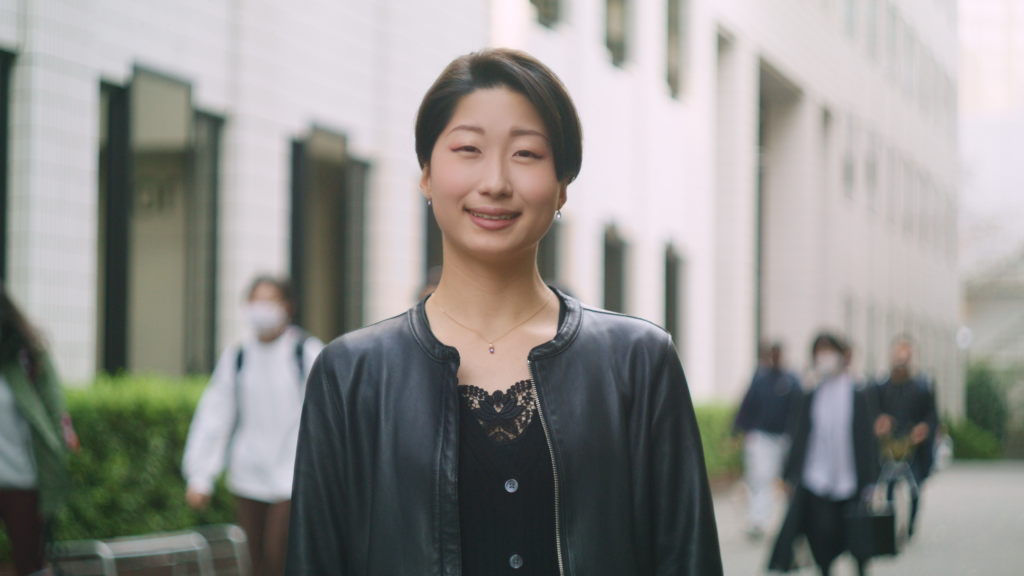Forming my own thoughts and opinions is evidence of my personal growth

Honoka Inamura, a senior in the Department of Hispanic Studies, says, “the area of growth I am most impressed with is my ability to look at social issues from a critical perspective and form my own thoughts and opinions on them in both Spanish and Japanese.”
After studying at both Sophia University and abroad in Colombia, her personal growth has come after interacting with a diverse range of people from unique backgrounds.
Becoming fluent in a second language allows us to convey our emotions more naturally
Growing up, I always had a passive personality. When I was in my first year of junior high school, my hometown of Miyagi was devastated by a large earthquake. While my home on the coast was destroyed, the school I attended was inland, so none of my classmates experienced the same kind of loss that I did.
This was a turning point for me, as I did not want to become someone who used hardship as an excuse to stop growing. From then on, I developed a more proactive personality type and used my newfound motivation to study abroad and apply for scholarships to make my dreams a reality.
When I was in high school, I decided that I wanted to study in Bolivia as an exchange student. While I was able to speak a small amount of Spanish, I realized that I would not be able to accurately convey the delicate emotions in my heart unless I learned the proper grammar and acquired a larger vocabulary.
That is why I decided to study Spanish from the very beginning at university. I chose Sophia University because it offered the opportunity to study not only the Spanish language but also international cooperation, a field in which I had always been interested.
Being a student in the Department of Hispanic Studies is not easy. However, I am very happy that thanks to my hard work, I am now able to have conversations with native Spanish speakers using natural expressions that cannot be translated easily. I have also gained the ability to discuss complex social issues, like gender equality, in Spanish.
In addition to studying the language, taking classes in various fields like area studies and international cooperation was very interesting. Not only was I able to find common issues that existed in both Japan and Latin America, but I also discovered instances where Latin America was more advanced than Japan. Studying the differences between cultures can create opportunities for improving the lives in our home countries.
Sharing the secret to happiness with others through first-hand experience

My most memorable experience from the past four years was studying abroad at the Pontifical Javeriana University in Colombia through an exchange program. I wanted to improve my Spanish abilities and integrate with the local community by any means necessary, so I chose a homestay in a small village that was a two-hour bus ride from the university.
The people I met in Colombia were incredibly welcoming and caring. My host sister was raising money to buy food for families who were in need due to the COVID-19 pandemic. And any time I was lost, the locals were always quick to help me find my way. In experiencing the kindness of the local people firsthand, a question arose in my mind: “Why are the people of Colombia so happy?”
While Japan is an economically advanced country, there are still many people who cannot afford to attend university, or have suffered emotional trauma that prevents them from seeking higher education. Even though there is still a culture of helping those in need in Japan, it is not something that is as deeply rooted in society as it is in Colombia. Sometimes, the act of helping others in Japan can be viewed as meddling, which makes it difficult to help strangers. I began to wonder if this leads to the high suicide rate and various other social problems.
In order to find an answer to this question, I am currently conducting research for my thesis on happiness levels, and comparing the results between Japan and Colombia. In comparing the two countries, I have come to understand that happiness is directly related to the connections we make with other people.
When asking Colombian people about their relationships with others, stories of shopkeepers and neighbors naturally came up. Even within a limited area, we found that many people have broader relationships than often found in Japan, which may impact their happiness level. Through these discoveries, I hope to find clues on how to improve the level of happiness for people in Japan.
The joy of discovering that hard work leads to personal growth
When I compare the person that I am today with the person I was when I enrolled in the Department of Hispanic Studies, I can clearly see the growth I have achieved.
There are many students on the Sophia campus that are eager to learn and talk about their passions, so studying alongside them has naturally increased my awareness of issues I had never known about or had no interest in before. Many students share my interest in social issues and international cooperation, so it was very encouraging to connect with them through classes and clubs.
Having spent the last four years in the Department of Hispanic Studies, the area of growth I am most impressed with is my ability to look at social issues and events from a critical perspective and form my own thoughts and opinions on them in both Spanish and Japanese.
Before entering university, I would either form no opinion on a topic, or conform to the opinions of others around me. Being able to think for myself is a very important skill that will be helpful for me in all aspects of my life.
Even though I only arrived in Tokyo four years ago, in that time, my world has expanded to levels I had never thought possible as I have been exposed to new ideas and values, both on and off campus. There are many reasons why I like Sophia University, but the most important one is the positive influence my fellow students had on me.
I am surrounded by classmates who see solving environmental issues as their own personal challenge and are working hard to start new clubs, while others are passionate about solving gender issues and actively promote the results of their studies. They have taught me so much, and I believe it is because of them that I am able to understand our society with a much broader perspective than I did before entering university.
※Please note that the content of this article is current as of November 2021